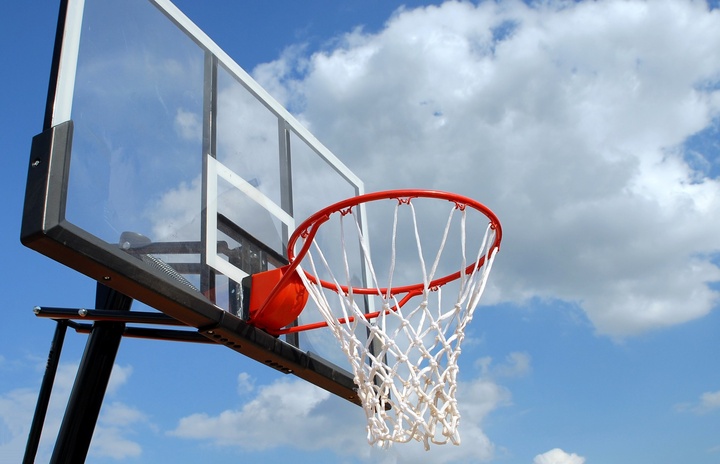
Fair weather. | Public domain.
I’ve been a big fan of the Golden State Warriors for the past few seasons. Why? Mostly because they have been playing beautiful, awe-inspiring basketball. This year’s championship roster was almost certainly the greatest team in NBA history, and while some people found the playoffs boring, what with the Warriors systematically dismantling all comers, to me the “beautiful chaos” of their team-focused game was never less than exhilarating.
I was also a moderate fan of the Warriors back in the mid-’90s, when they had Tim Hardaway at the point and, briefly, both Chris Mullin and Chris Webber in the post.
I didn’t much care for the team during the two intervening decades, though, because, quite simply, they sucked. And teams that suck aren’t much fun to watch.
To a certain type of sports enthusiast — the kind who uses plural pronouns when talking about their favorite team, as if wearing an officially licensed jersey and yelling at their TV has earned them a position with the organization — this makes me something loathsome: a “fair-weather fan.”
North Coast Journal News Editor Thadeus Greenson belongs to the supposedly more noble school of fandom, which demands sticking with your team through thick and thin. In this week’s incendiary NCJ cover package, dubbed “Unpopular Opinions,” Greenson informs me and my ilk that we are not entitled to call ourselves Warrior fans. Fan status, he insists, must be earned through years of blind loyalty and an encyclopedic knowledge of the team’s history. Without a proven record of such scholarship and devotion, says Greenson, “you don’t get to claim allegiance now.”
Says you.
Look, professional sports teams are businesses, first and foremost. Being loyal to any one team makes no more sense than being loyal to Walmart or Disney. In the National Basketball Association, the businesses and their employees certainly don’t reciprocate fan loyalty. Players switch teams and teams switch cities. (The Lakers were born in Minnesota, hence the name.) As the esteemed sports philosopher Jerry Seinfeld once observed, devoted fans are basically just rooting for laundry.
Teams that suck don’t deserve your allegiance any more than products that suck. Imagine a movie buff who only roots for Warner Bros. productions. Would he call you a poseur if you liked Wonder Woman but can’t name the production designer from 1990’s The Bonfire of The Vanities?
To my mind there are many different reasons to develop — or abandon — allegiance with a particular team. As a kid I decided I was a Lakers fan because of Magic Johnson, who seemed like a nice guy and ushered in a fast-paced style of play called “showtime.” I hung a big door poster in my bedroom and drew pictures (poorly) of Magic in mid-dribble. Later, as a McKinleyville High School student in the early ‘90s, I became of fan of the Sacramento Kings — a truly abysmal team by any measure — because when visiting my dad in the Sierra foothills he’d drive me to games at Arco Arena, which was always packed with screaming fans whose loyalty, by and large, stemmed from geographic proximity.
During the 2000s, when the Lakers were racking up championships and accumulating millions of new fans, I grew to detest this team I’d once loved, largely because the organization seemed determined to collect every arrogant asshole in the league, including alleged rapist Kobe Bryant, preening pretty boy Rick Fox, and the truly villainous Karl Malone, a royal prick who impregnated a 13-year-old in college and then fought to avoid paying child support. (Malone also made ignorant comments about my childhood hero, Magic Johnson, after the latter announced he was HIV-positive.)
Greenson ends his brief treatise on true fandom with an editor’s note: “For the record, despite being born and raised in Oakland, I am — and always will be — a Lakers fan.”
I, on the other hand, will probably keep switching loyalties, watching whichever team I find most entertaining or otherwise root-worthy at the time.
I also enjoy fair weather.
CLICK TO MANAGE